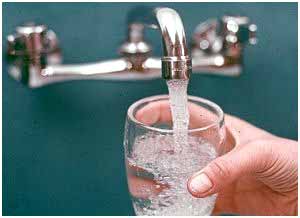A recently released study by the American College of Allergy, Asthma and Immunology (ACAAI) indicates that dichlorophenols, chemicals used to purify tap-water, may play a role in the development of food allergies.
Dichlorophenols are also used as a component in pecticides and weed control products. Though the study does not definitively prove a cause/effect relationship, it suggests “that high levels of dichlorophenol-containing pesticides can possibly weaken food tolerance in some people, causing food allergy,” explained the study’s lead author, allergist Dr. Elina Jerschow, in an ACAAI news release.
Published in the December issue of Annals of Allergy, Asthma and Immunology, the study analyzed data collected from more than 2,200 participants in a U.S. National Health and Nutrition Examination Survey. The researchers determined that those with sensitivity to one or more foods had higher levels of dichlorophenols in their urine compared to people without such allergies. Overall, more than 400 of these people had a food allergy and more than 1,000 had an environmental allergy.
“While the way this study was done does not allow concluding that the pesticides are responsible for the allergies, it certainly raises that possibility and justifies pursuing the kinds of studies that can help sort out if these pesticides are, indeed, the cause,” said Dr. Kenneth Spaeth, director of the Occupational and Environmental Medicine Center at North Shore University Hospital in Manhasset, N.Y.





